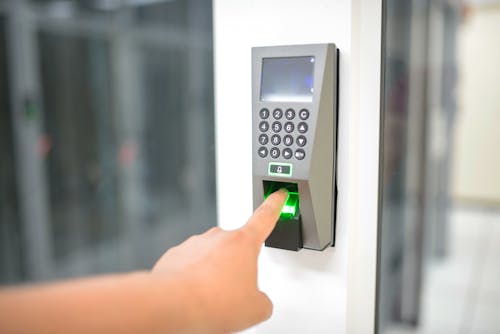
Biometric Authentication: The Future of Password-Free Security
Passwords are a pain. We forget them, we reuse them, and we worry if someone steals them. That’s why biometric password free security is becoming the new standard for safer and smarter access. In 2025, more people are turning to biometrics to protect their data and simplify their lives.https://www.goftechsolutions.com/
What Is Biometric Authentication?
Biometric authentication uses your unique body features to verify your identity. This includes things like fingerprints, face scans, voice recognition, and even your eyes or heartbeat patterns. Unlike passwords, these can’t be guessed or stolen easily.
Why Is Password-Free Security Important?
Let’s face it — passwords are outdated. We’re told to use complex combinations, change them often, and never reuse them. It’s exhausting. With biometric password free security, you don’t need to remember anything. Just use your face or finger, and you’re in.
Most Common Types of Biometrics
In 2025, the most used biometric systems include:
- Fingerprint Scanning – Fast and widely used on phones and devices
- Facial Recognition – Secure and contactless
- Voice Recognition – Great for smart assistants
- Iris Scanning – Highly secure and difficult to fake
- Behavioral Biometrics – Based on how you type or move your mouse
These systems are integrated into smartphones, laptops, smart homes, and even cars.
How Biometric Security Is Used in Daily Life
Today, we’re using biometrics more than ever. Unlocking phones, logging into apps, accessing bank accounts, and even securing smart locks at home — all can now be done without typing anything. This makes daily tasks faster, more secure, and stress-free.
The Role of Biometric Security in Finance
Financial services are leading the way in adopting biometric password-free security. Mobile banking apps now use facial or fingerprint recognition for login. ATMs in some countries accept palm or iris scans instead of cards. This not only enhances security but also reduces fraud.
Are Biometrics Safe?
Yes — and no system is 100% perfect. While biometrics are harder to hack than passwords, they still need strong encryption. That’s why modern biometric systems store your data securely and often on your device rather than in the cloud. This lowers the risk of mass data breaches.
Privacy Concerns with Biometric Data
Some people worry about sharing their biometric info. That’s understandable. But most systems today use “local matching,” which means your biometric data stays on your device. Also, new privacy laws in many countries are protecting users and limiting how companies can use this data.
The Future of Biometric Technology
In 2025 and beyond, we’ll see even smarter biometric tools:
- Biometric wearables that unlock devices with your heartbeat
- Cars that recognize drivers by voice or face
- Homes that open only for family members based on gait or movement
- Multi-biometric systems that combine face, voice, and fingerprint together for ultimate protection
The world is quickly moving toward a password-free, seamless experience.
Benefits of Biometric Password Free Security
Let’s sum it up — why are people choosing biometrics?
- No more remembering passwords
- Fast and easy access to apps and services
- Greater protection against hacking and phishing
- Convenience for mobile and wearable devices
- Reduced fraud and identity theft
- Personalized security experience
Frequently Asked Questions (FAQs)
1. Is biometric authentication better than passwords?
Yes. Biometrics are more secure, faster, and harder to fake than traditional passwords.
2. Can someone steal my fingerprint or face data?
Only if it’s stored improperly. Most devices use secure local storage, so your data stays protected.
3. What if my fingerprint scanner stops working?
Most systems offer backup methods like PINs or passcodes as a fallback option.
4. Are biometric systems available on all devices?
Most modern phones, tablets, and laptops now support at least one biometric method.
5. Is biometric security safe for kids or older adults?
Yes, though some systems may have trouble with changes in facial features or voice over time.

